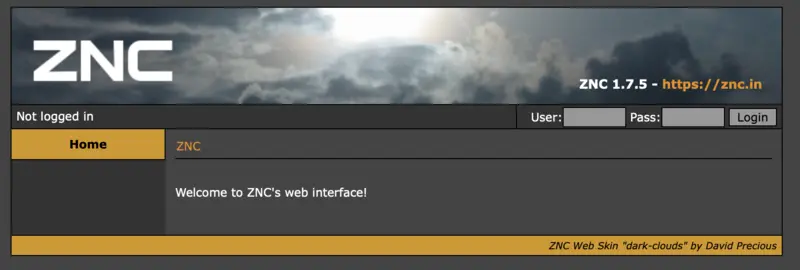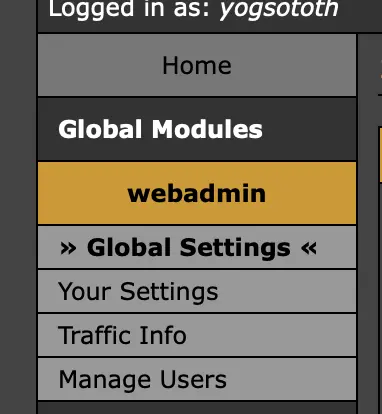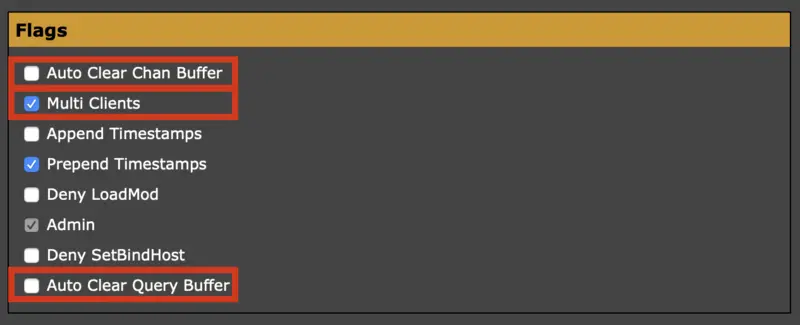After reviewing and testing many different chat solutions the clear
winner (at least for my taste) is IRC. More precisely via those
softwares:
- IRC
- ZNC (with playback and palaver module)
- weechat with replay script (terminal client)
- thelounge (web client)
- Palaver (iOS client).
Why IRC?
How to chat in 2019? Certainly with slack, or via a social media app
in the browser or mobile phone app.
How geeks should chat in 2019?
This post is about my opinion on the subject after having tried many
different chat solutions. Here is a list of the features I
think a modern solution should have:
- terminal client or terminal-like
UI (in emacs for example). All modern UI looks cool for
screenshots, but if you are going to use it a lot, you will prefer
density over good looking. Most web apps are terrible when looking at
delivered information by number of pixels ratio.
- multi-platform: If you do not have a terminal at
hand (or emacs) then, you should be able to get your message on your
phone or via a web interface for portability.
- self-hosted: you should control your data, your
history, your logs, the encryption methods, etc…
- teams and direct messages
- notifications, I tend to control those a lot, but a
small private team chat is one of few exception where you generally want
to be notified.
- Frugal. Really, we have a responsibility to do our
best not to consume more resources than we really need. Chat should be
about TEXT, not images, not videos, not presentations and PDF.
- No anti-features: show when someone is typing, show
when someone as read your messages, etc… Those functionalities increase
your social insecurities feeling. They forces you to answer sooner
instead of really take the time to answer correctly. You can read
Digitial minimalism to know more about that subject.
- Free software
I am quite disappointed by modern chat applications.
Their major problems are:
- resource-heavy; most those client applications
(slack, gitter, riot, mattermost, etc…) easily consume more than 300MB
of RAM. Most of the time those clients are electron applications.
- not private; most solution do not encrypt your
conversations. Even if using encryption mechanism and you trust your
client, and you will still reveal your social network topology.
- anti-minimalist; I want dense text. I do
not want:
- emojis,
- images,
- animations (gif or videos),
- HTML/Markdown display
- manipulative; they try very hard to optimize
engagement. This is generally achieved through FOMO and
social anxiety manipulations. A few examples:
- show when someone is writing a message
- show when someone has read a message,
- get notified about missed messages,
- get a "top messages you missed",
- etc…
- Prepare to EEE: Most of those
"modern" solution are all-in-one solutions. Server API + Clients with
specific features. Doing it that way make it possible to provide
specific features only via this "all in one" solution. If you want to
use another client, or if they deprecate some (like slack did by
removing their IRC bridge) then you will have no choice to use their
entire closed ecosystem.
About
failed attempts
- Matrix: I've used Matrix, and in fact it was really good except; the
server is written in python and is clearly not frugal at all. Also I
wanted to delete most of the history in the DB, and it was impossible to
find a working documentation explaining how to do that correctly and
easily (I'm not even sure this is possible). You can easily remove some
channels history from the DB, but doing the opposite, keeping the
history only of some channel and removing all others doesn't appear to
be easy.
- Mattermost: I've tried to install mattermost, to install it, there
is no package, you need to start a shell script as root that will erase
and change your nginx configuration…. Seriously…
- Rocket.chat, ho…. a nice word about the difference between community
version and pro version… no thank you. I prefer something sustained by
free software standards.
- I tried XMPP, it was OK. But the clients weren't really good, I
could have used bitlbee, the installation looked more complex than
IRC.
Finally, IRC + ZNC with replay module is the winner. It was the
easiest and best solution.
- it works
- it is frugal
- it is old and stable
- it is both minimalist and feature complete
Tutorial
Here is how to have a great private self-hosted IRC server to share
with a small group of people.
If this appear to be too much work for you, you should simply use a
service that host a znc bouncer for you (I found some apparently free
services doing that) and find an IRC server allowing you to create some
private channel.
Self Host
You might use an external IRC server. But it is a lot safer to
self-host it.
Self-hosting might not be easy if you are not familiar about how to
do that.
- buy a domain name
- buy a machine (VPS, baremetal, host it at your home)
- configure the DNS for your domain name go to your machine
- configure letsencrypt to support wildcard hostnames
- know how to create reverse proxy
I couldn't find a nice resource to link to with all those details.
This is certainly a call to write such an article myself.
Create a reverse proxy with
nginx
This is how I create new reverse proxies with nginx using a template:
reverse-proxy-template.m4.
That I use with the following script: new-reverse-proxy.sh
#!/usr/bin/env zsh
(($#<3)) && {
print "usage: $0:t SUB DOMAIN PORT"
exit 1
} >&2
SUB="$1"
DOMAIN="$2"
PORT="$3"
m4 -D SUB=$SUB -D DOMAIN=$DOMAIN -D PORT=$PORT reverse-proxy-template.m4 > $SUB.$DOMAIN
The script will generate a reverse proxy nginx conf that I put in
/etc/nginx/sites-available/ and I link it
in /etc/nginx/sites-enabled.
There are multiple IRC server. I gave my preference to ngircd because it appeared
lightweight, easy to install and configure.
So use your preferred package manager to install it:
sudo apt-get install ngircd
Configure the /etc/ngircd/ngircd.conf
file. I only show the really interesting lines for a private small IRC
for a team.
[Global]
Name = irc.your.domain
Info = My Incredible IRC
Password = privateIRCSecretPassword
[Options]
# prevent channel creation
AllowedChannelTypes =
[SSL]
Certfile = /etc/letsencrypt/live/your.domain/fullchain.pem
Keyfile = /etc/letsencrypt/live/your.domain/privkey.pem
Ports = 6667,9999
[Channel]
# predefined channel
Name = #general
Topic = Main team channel
MaxUsers = 23
[Channel]
Name = #status
Topic = Status update channel
MaxUsers = 23
Install ZNC from sources or via your package manager. I choose
sources. Choose the latest version if you can.
> wget https://znc.in/releases/archive/znc-1.7.5.tar.gz
> tar xzf znc-1.7.5.tar.gz
> cd znc-1.7.5
> mkdir build
> cd build
> make
> make install
Then create your config file for example via:
> znc --makeconf
For the question, keep buffers after replay, you should certainly
answer yes. To use znc web interface behind an nginx reverse proxy:
<Listener listener0>
AllowIRC = false
AllowWeb = true
Host = localhost
IPv4 = true
IPv6 = false
Port = 10001
SSL = false
URIPrefix = /
</Listener>
<Listener listener1>
AllowIRC = true
AllowWeb = false
IPv4 = true
IPv6 = true
Port = 10002
SSL = true
URIPrefix = /
</Listener>
Now you can put your ZNC behind a reverse proxy.
In order not to miss any message in your clients you should keep a
bouncer running for you that will keep all IRC messages. But in order to
sync this history correctly among all your different IRC clients you
should install the playback module. And if you wish to receive push
notification you should also add a module for your application (in my
case palaver).
Playback module
In order not to miss any messages in all your clients you should add
this ZNC playback module.
> cd ~/.znc/modules
> wget https://raw.githubusercontent.com/jpnurmi/znc-playback/master/playback.cpp
> znc-buildmod playback.cpp
Should create a playback.so in ~/.znc/modules.
Palaver push module
You should find the ZNC push palaver module here:
https://github.com/cocodelabs/znc-palaver
> git clone https://github.com/cocodelabs/znc-palaver znc-palaver
> cd znc-palaver
> znc-buildmod palaver.cpp
> cp palaver.so ~/.znc/modules/
Now you should be able to reach znc.my.domain. You should see something like ZNC Login Page
ZNC Login Page
Login with your admin user (set during the configuration or znc).
Then go to your Global settings ZNC Global Settings
ZNC Global Settings
And if you scroll down you should see a list of modules. Select the
playback and palaver modules and save your preferences. ZNC Modules
ZNC Modules
Then under the global settings, go to your User settings and scroll
down to see the Flags: ZNC User Settings Flags
ZNC User Settings Flags
Take care to unselect the "Auto Clear Chan Buffer", "Auto Clear Query
Buffer" and to select "Multi Clients". If you forget to do that, the
playback plugin will not work as expected.
Finally add your IRC server to via the Network block (in your User
Settings): ZNC Add Network
ZNC Add Network
From now on, you should always appear as a connected user to your IRC
server. This is your ZNC bouncer reading all the messages for you even
when you are not here.
weechat
Weechat the IRC client I use the most. It is terminal based, use very
few resources, it is fast, dense and very nice to use.
add the weechat
znc playback script
in weechat, set server capabilities
/set irc.server_default.capabilities "account-notify,away-notify,cap-notify,multi-prefix,server-time,znc.in/server-time-iso,znc.in/self-message,znc.in/playback
add your server
/server add zncnetwork znc.my.domain/6697 -ssl -username=username/zncnetwork -password=password -autoconnect
/connect zncnetwork
save your confi with /save
More details here: https://wiki.znc.in/Weechat
thelounge
Here are the infos for installing it.
https://thelounge.chat/docs/install-and-upgrade
You can use my reverse proxy scripts to put the lounge behind a
reverse proxy from your host. So you'll be able to reach thelounge.my.domain. Of course, connect the
lounge via ZNC not directly to your IRC server.
Palaver
Using palaver should be straightfoward. There is a very clear ZNC
configuration choice.
Here is its website: https://palaverapp.com
I previously used the app mutter, but it stopped to work after the
iOS 13 update.
Bonus
No brainer upload file
Quite often you want to share images/files in your chat. Instead of
using a public channel, I preferred to create a minimalist (223 lines of
haskell) private server for this purpose only.
It is highly inspired from the image uploader example of the Yesod
web framework. It is a single self-executable file + one css and jquery.
The only dependency is stack.
So to install it:
- install stack
git clone https://gitlab.esy.fun/yogsototh/ymgur .- follow the README instructions to launch it
- create an nginx reverse proxy protected with basic-auth
- share the creds to your group members
- enjoy